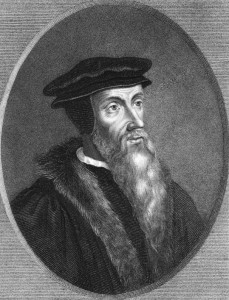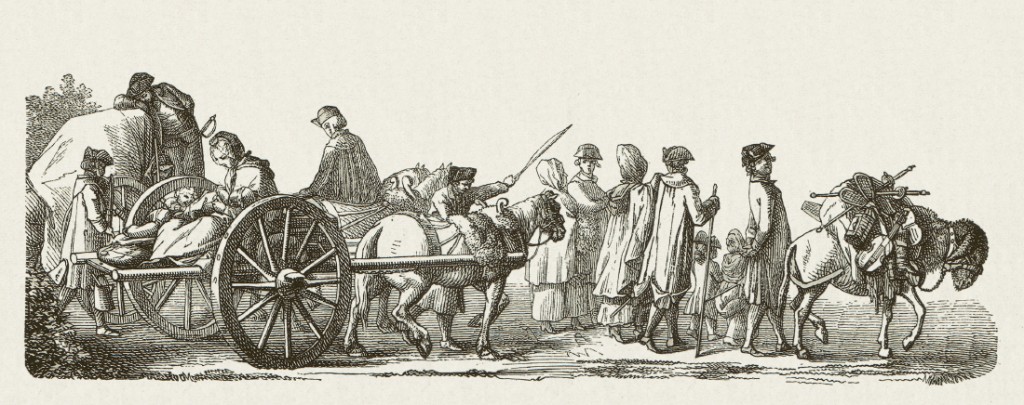Currently in France, Protestants are a minority group. There are still over 300 towns with at least 10,000 inhabitants that do not have an evangelical church. This is not surprising as several hundred years ago Protestantism was virtually eradicated from France as a result of persecution by Catholics. Many consider evangelical Christians to be a cult, similar to the Jehovah’s Witnesses. There are more leaders of the occult than Protestant church leaders, and there are over 30,000 registered mediums and spiritual healers. One of the challenges for evangelicals is to prove that they are normal and Christian! It is also hard to function well as a Christian in a country where there is so much spiritual darkness. There are also increasing numbers of Muslims in France: a dynamic which could threaten Christians there. Since the mid seventeenth century, France has been predominantly Catholic, although in reality Catholicism in France is more of a cultural tradition. The French are very secular, with 63 percent of young people, in 2012, saying that they belong to no religion. Recently, a large number of both Protestants and Catholics stood together to oppose the government’s decision to permit gay marriage.

It has not always been the case that Catholics and Protestants have united together. There were fierce battles between both during the sixteenth and seventeenth centuries in France. Both Catholics and Protestants were powerful religious groups. Martin Luther had a huge influence on the church in the sixteenth century. Huguenot was the name given to Protestants who were influenced by Martin Luther’s teaching at this period. They later adhered to the more reformed teaching of the famous French Protestant, John Calvin.
By the middle of the 16th century there were as many as 1.5 million believers: considerably more Protestants than there are today. Many of the Huguenots were influential people from the nobility and artisan class. They had their own churches, schools, castles and garrisoned towns. Catholics considered them to be a threat to their religion and to the future of France, and they persecuted them relentlessly, between 1562 and 1665.
One of the most vicious attacks on Protestants was in 1572 when at least 3,000 men, women and children were killed during a three day period in and around Paris. The victims of St Bartholomew’s Day Massacre included Gespard de Coligny, the admiral of the French navy , who was also the Governor of Picardy, a region of France. The Protestants were a very influential force in French society, but increasingly severe persecution drove the majority underground or overseas. After 1610, the Huguenots had increasingly few rights and freedoms. By 1665 Huguenot men and women were imprisoned for their faith and their children were forcibly sent to Catholic orphanages, to be raised as Catholics. Their families were billed for their board and lodging! The Huguenots either fled, were imprisoned, or went into hiding. They contributed much to societies around the world, as they tended to be skilled and intelligent people. Ten thousand of them came to America and forty to fifty thousand came to the UK.

By 1685, Louis XIV believed that years of intimidation and persecution had largely done away with the Huguenots, and in October 1685, Louis issued the Edict of Fontainebleau, which formally revoked the the Edict of Nantes and made the practice of Protestantism illegal in France .
Protestantism was virtually eradicated as a result of the serious persecution of the Huguenots. The affects of this eradication of Protestantism still influence attitudes towards evangelicals today. Being a minority they are often misunderstood, although, with Jesus’s help, Christians will have the opportunity to demonstrate that what he has to offer is life-changing and valuable to the French.
It was not only Protestantism that was under attack in the eighteenth century. After the French Revolution in 1789, the Catholic Church was considered counter revolutionary, and the new government wanted to benefit from the church’s wealth. Political ideology and financial expediency affected the reaction of the new French leaders to the church. By 1794, France’s churches were closed down and the Catholic religion was suppressed. The Enlightenment thinking, which was widely influential during this period, promoted man’s reason, over and above God and religion. Both of these factors had a very negative effect on Catholicism in France. Immediately after the revolution, Sunday was abolished as a day of worship and rest, and one of the cults that was introduced to replace Catholicism was the “cult of reason” . This recognized no god, but worshipped the goddess of reason in former churches which were turned into temples of reason!
The Catholic Church was allowed to have certain rights under Napoleon, but there was increased government control of the church. In 1905, there was an official separation of church and state, making France a secular country. It is forbidden to carry a Bible, wear a Muslim headscarf, or to in any way promote any religion in a public place.
In 1985 the French President made a public apology on behalf of the French government and people, apologizing for revoking the Edict of Nantes in 1598. The removal of the edict had ended the protection and religious freedom that the Huguenots had benefitted from previously. In 1985, a stamp was issued promoting French “tolerance, pluralism, and brotherhood.” Pray that the French would not just tolerate Christianity, but embrace it!
Today 600,000 French residents self identify as attending evangelical churches, according to census figures. Of these, 460,000 regularly practice their faith. This is out of a population of 63 million. In comparison there were about 1.5 million Huguenots out of a population of 18 million in 1562, before the persecutions began. On the positive side French Christians have grown in number, substantially since 1950. Their numbers have increased ten fold in this period! There should be much faithful prayer that this multiplication would continue, as vibrant Christians demonstrate the love of Christ, brushing aside the secular mentality, and spiritually dark forces that still prevail in France.
A much more recent threat to the church, compared to the Catholic one in the past, is the growth of Islam . The muslims are of African descent, coming into France from France’s former colonies. According to the 2010 Pew Report, Muslims made up 7.5 percent of the population, and, as a result of the growth rate of Muslim families, it is expected that this number will grow considerably. Most are believing, and half are active in the Muslim faith, which has the potential to threaten Christians in France, as their numbers grow. Mosques are being erected much faster than Catholic Churches, and many formerly Catholic Churches are being turned into mosques. On a positive note, it is easier to reach out to Muslims in France than in the Middle East and God can turn a threat into a blessing!
What can be concluded about France from past and present religious challenges?
1. Much prayer is needed. We are not trying to change mere opinion and culture. Christians are up against “spiritual forces”and the “schemes of the devil” (Ephesians 6: 10-12). What else could have caused so much bloodshed and opposition to the truth? What power is behind the occult and Islam? Please fight this battle, wearing spiritual armor, fighting God’s battle with His weapons.
2. The Huguenots established a French legacy of faith and belief in the Bible. Being a Catholic may be traditional, but so is being a Protestant. Please pray that we can help reawaken an appreciation of the blessings and attributes of the Huguenots in France. They were a remarkable group of people!
3. Pray against secularism, atheism, and humanism. They stand against faith.
